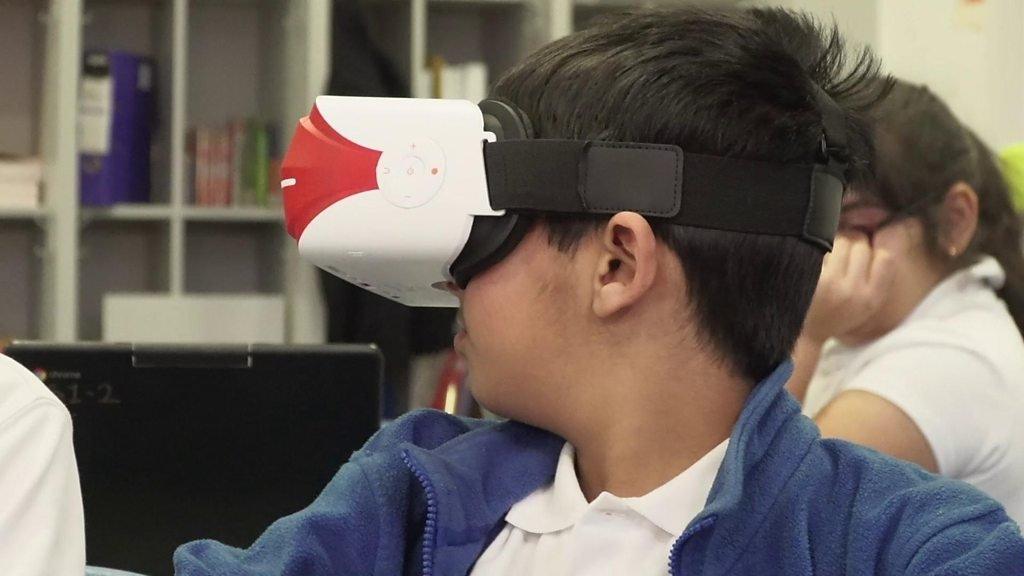Neuralink: What is the brain chip designed by Elon Musk?
- Published
- comments

Scientists are getting ready to test microchips in people's brains - to join humans to computers in a new way.
Nope, this isn't the start of a science fiction book!
The microchips are designed by a company called Neuralink - co-founded by Elon Musk - which is hiring someone to lead a team of researchers that will test the chips in people's brains.
Neuralink, which was co-founded by Musk in 2016, is a company that aims to "connect humans and computers" according to its website.
But don't hold your breath - while they say it will happen soon, the company have been known to overestimate how quickly they can get it done - in 2019, they promised the chips would be planted in humans by 2020.
How does it work and what will it do?

Elon Musk also owns the rocket company SpaceX
Dr Roz Wyatt-Millington, a Senior Lecturer in Electronic Engineering at Leeds Beckett University, told Newsround that the technology will be used to link our brain with devices we use.
"The idea is to allow these chips to record the electrical signals that the brain produces, process them in real time - that is as they are produced - and send the information via Bluetooth to an app on a mobile device," she said.
"This would allow people who cannot use their hands to control their mobile.
"Long term the aim is to let them use any Bluetooth mouse or indeed keyboard so they can use their brain to directly control a computer."
Is it safe?

The technology will have to be approved before the general public can use it
The brain is a very sensitive organ, and so planning for anything to be attached to it or put inside it needs to be done extremely carefully.
That's why Neuralink have spent so long testing it, Dr Roz explained: "The technology is based on years of research into what we call the brain-machine interface - that is devices that allow a digital device to communicate directly with the brain.
"It will have to go through full clinical trials so by the time it is available generally it will be deemed to be safe for use in humans."
- Published20 January 2020

- Published23 May 2018

